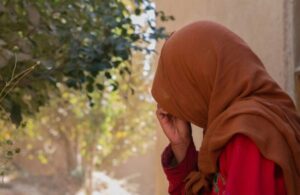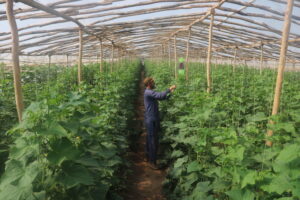KABUL (SW) – Salam Watandar has conducted a survey among 751 youths across 28 provinces in the country to explore the extent to which young people engage in sports/exercising alongside their daily activities.
The findings of the survey reveal that out of the 751 youths surveyed, 488 individuals, constituting 65% of the participants, claim to exercise daily. However, 263 respondents, comprising 35% of the survey, stated that they do not engage in exercising due to various reasons.
Among the participants, 418 were men and 333 were women. The results, based on gender segmentation, indicate that men participate in sports more than women. Of the 488 individuals who exercise regularly, 61.7% are men, while only 38.3%, totaling 187 individuals, are women.
Furthermore, the survey investigated the reasons behind exercising among men and women. The findings show that most men exercise for muscular development, while a significant proportion of women engage in exercising for beauty reasons.
According to the survey, 71.9% of men who participate in sports cited muscular development as their primary motivation, while 66.4% of women mentioned beauty as their main reason for engaging in exercising.
Erfan, a 25-year-old, who has been regularly exercising for seven years, tells Salam Watandar, “I used to play football a lot in the beginning because I enjoyed it. Now, I do not have as much time, and I feel aerobics exercises are more beneficial for my health. That is why I go to the gym every day, do some cardio, but I play football less frequently now, more as a hobby.”
Similarly, Haniya, a young lady who used to exercise regularly before, has now quit due to the lack of suitable facilities and opportunities. She explains, “I used to go to the gym with my mother; she has got diabetes. The doctor advised her to exercise. However, walking hurts her knees, so we used to go to the gym together. I did fitness exercises; I wanted to stay fit and lose weight.”
In this survey, the reasons for not exercising among young people were also analyzed, with gender segregation (female and male). Among women who do not exercise, 65.2% cited the lack of appropriate facilities and opportunities as the reason. However, most men who do not exercise mentioned a lack of time as their main barrier.
Zohra Shamal says, “Exercising is good, it has many benefits, I understand that. However, where do we exercise? Our house is just a three-room apartment. It would be great if we had a gym nearby. I like exercising myself, but how much can I walk? The weather is polluted; instead of getting healthier, I get sick.”
Jamil Joya, also adds, “I work; I am not free during the day, and at night, I am too tired to go to the gym. Exercising is hard for me. I am overweight, but I do not have the motivation to exercise.”
Encouraging youth to exercise: A path to healthy communities
Sports experts and coaches believe that all sports and exercising have health benefits, and young people should be encouraged to do sports.
Shafiq Akbari, a sports expert, emphasizes the crucial role of exercise in the mental and physical health of young people in any circumstances. “Exercise does not mean you have to train like professional athletes to win championships. Exercise means keeping your body healthy, burning fat, and maintaining a healthy weight. You can do these exercises at home with the simplest equipment. Exercise is very important,” he said.
Jalal Hekmat, the owner of a club in Kabul, says, “The authorities only focus on a few disciplines. Many of our teams practice a lot, but we have only a few competitions. If this were on a larger scale, they would exercise more and be healthier because they have the motivation.”
However, according to sociologists, paying attention to youth sports and exercising can address many social abnormalities.
Rashed Sediqi, a social affairs expert, states, “Sports provide a desirable path for young people and can be a good alternative in combating unemployment, addiction, and mental unrest. The government should support sports and exercising, and encourage youth to participate.”
Yet, Atal Mashwani, a spokesperson for the Afghan National Olympic Committee, while not confirming the lack of opportunities for women in sports and exercising, speaks of efforts to strengthen various exercising disciplines to encourage youth participation.
He adds, “Regarding the promotion of education and sports activities, it must be reminded that the country’s sports administration has specific plans, both in domestic sports activities and in international competitions. We have established two new departments and one directorate, one for traditional sports and one for universal sports. The duty of these departments is to strengthen traditional sports and continue to encourage people to exercise.”
The findings of this survey highlight the lower participation of women in exercising, especially as women have faced restrictions on participating in various sports since the Islamic Emirate government re-established in Afghanistan leading many of them to leave the country.






